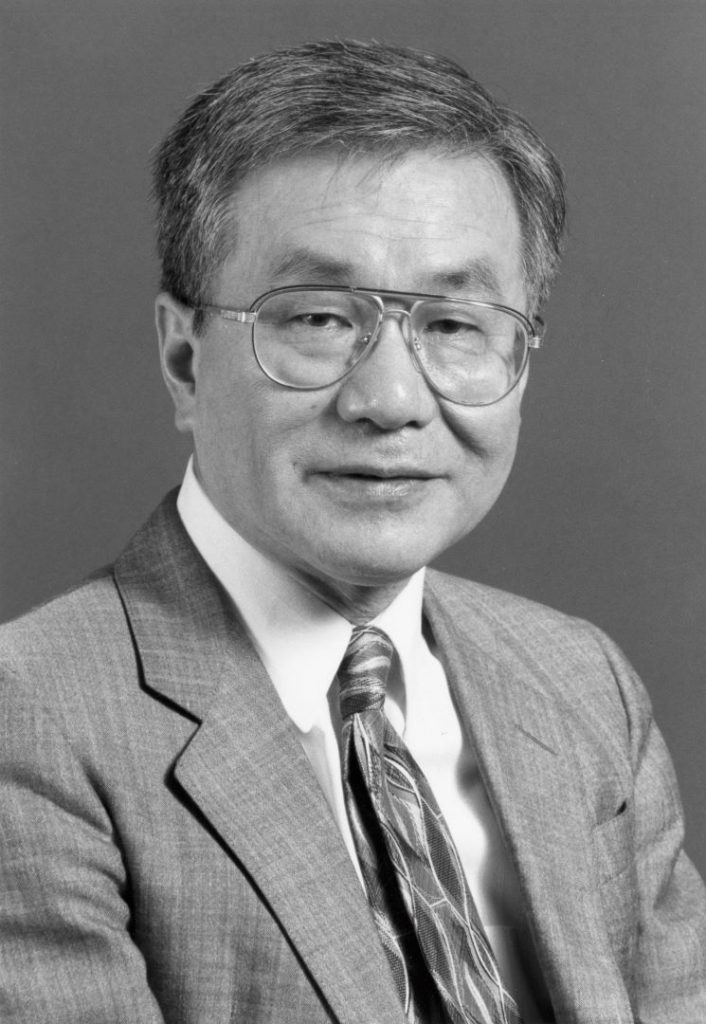 We are sad to share news of the passing of Professor Emeritus Yoshio Masui, FRS, OC on April 18, 2024. Prof Masui was a valued colleague in the Departments of Zoology (1968-2006) and Cell & Systems Biology (2006-2024) at the University of Toronto. His discoveries revealed important details of how an egg becomes an adult, and gave clues as to how cancer can arise from uncontrolled cell growth.
We are sad to share news of the passing of Professor Emeritus Yoshio Masui, FRS, OC on April 18, 2024. Prof Masui was a valued colleague in the Departments of Zoology (1968-2006) and Cell & Systems Biology (2006-2024) at the University of Toronto. His discoveries revealed important details of how an egg becomes an adult, and gave clues as to how cancer can arise from uncontrolled cell growth.
Born in 1931 in Kyoto, Japan, Masui received his undergraduate (1953), master’s (1955) and doctoral (1961) degrees from Kyoto University. In 1961 he started his own lab at Konan University, beginning his work on frog eggs and embryos at different developmental stages.
Masui arrived at U of T in 1968, in search of “freedom for research – neither interference with nor solicitation for choices of research projects”. His area of expertise – developmental biology – was practically unknown. The study of development in living organisms would soon become an essential discipline and Masui himself would be cited in his Order of Canada as “one of Canada’s finest scientists”.
Professor Masui was curious, wise and kind. He was propelled through setbacks or self-doubt in his research by a “strong curiosity to get answers to worthy questions”. As a young researcher attracted by the idea of an “organizer” in amphibian embryos, Masui confronted problems with poor sensitivity in biochemical assays and with tracking proliferating cells during multicellular development.
In an early demonstration of his deep wisdom, Masui determined that the best approach was to start with the simplest animal model he could find, unfertilized frog eggs. By initiating growth of the egg, he could find what organized the divisions and development of these single cells into complex organisms.
The freedom provided by U of T allowed him to make good use of his curiosity and led to many significant insights. Working with basic equipment, Masui and his students were able to pinpoint two factors that govern cell proliferation.
The first factor, maturation promoting factor (MPF), initiates cell division; the second, cytostatic factor (CSF), stops it. Masui displayed technical as well as scientific skills by developing a microinjection technique to transfer controlled amounts of MPF and CSF directly into cells.
Masui and others showed that MPF and CSF were proteins, the first proteins shown to regulate the cycles of cell division. MPF was just one of a class of proteins called cyclin-dependent kinases which control many aspects of cell division in both embryonic and adult cells.
Masui’s citation for the Order of Canada notes “The discovery of MPF and the characterization of its biochemical properties marked the start of all modern-day research on the regulation of cell division. This work has been critical to understanding the causes of diseases like cancer.”
Masui’s kindness was experienced by everyone in the Department who met him. Graduate students in Cell & Systems Biology benefit every year from scholarships that he generously established with money from his many awards. Although he was too humble to promote his own accomplishments, he always had time to exchange ideas with students and to mentor colleagues.
His colleague, Prof Rudi Winklbauer relates that “After hearing a research presentation, he often asked a single polite yet piercing question which went right to the heart of the matter. We wondered how he did this. I think his basic instinct was to always paint the big picture, placing any subject in the large background available to him, and then see how it holds up to stringent logical examination.”
Masui was widely read and deeply cultured. Prof Winklbauer fondly recalls “He made reading suggestions to the students in my lab. I overheard him advise one student to read Descartes and interrogate another about Chinese novels. Of course, there had to be fun in all of this. One late evening in a restaurant with our lab members, he was moved to belt out the song “Am Brunnen vor dem Tore” by Schubert – in German…and in tune.”
Over his long research career, Masui received many prestigious awards, including the Manning Award for Innovation (1990) for what the judges called “a major step forward in the battle against cancer.” He also earned Canada’s Gairdner International Award (1992) for “contributions in the field of cell cycle regulation”, and the Albert Lasker Medical Research Award (1998; often called America’s Nobel Prize) for “pioneering genetic and molecular studies that revealed the universal machinery for regulating cell division”. Masui was elected a Fellow of the Royal Society in 1998 and in 2003 was awarded the Order of Canada.
Masui has long been retired from teaching, but his insightful questions were a constant presence at Departmental seminars. He is survived by his wife, Yuriko and his children Hitoshi and Sayuri. Everyone at Cell & Systems Biology will miss his kind smile and his wise insights. Colleagues and friends who wish to honour his legacy may choose to add to the Yoshio Masui Prize for Graduate Students.
With files from the Faculty of Arts & Science and from Fernando Valencia
